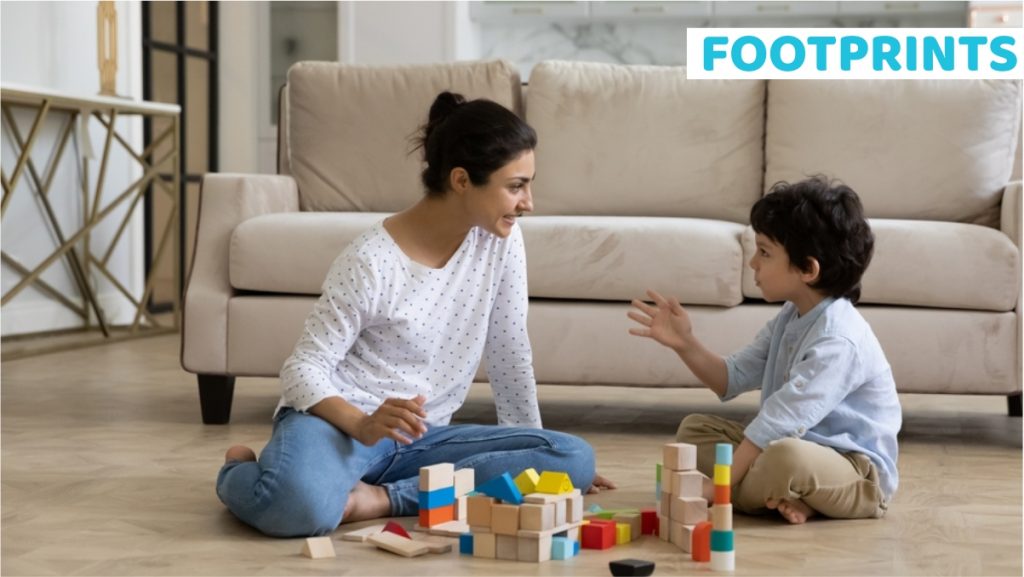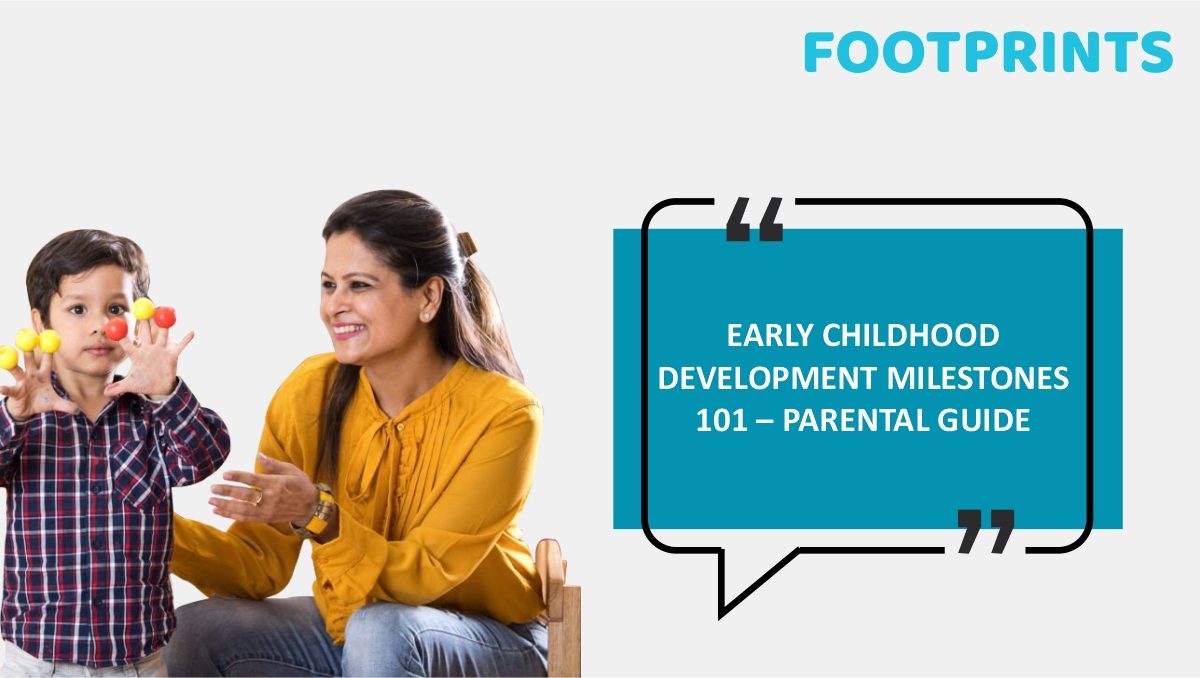
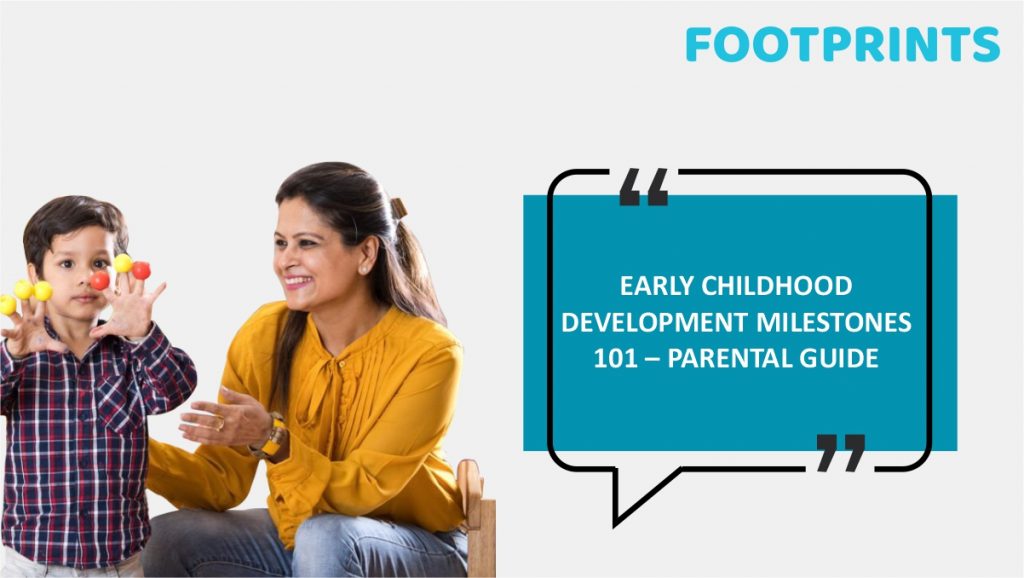
What is the first thing you notice about kids when you spend time with them? They are amazingly fast learners who absorb information at lightning speed and can develop their vocabulary skills faster than you can think – is that all? And the best part about them is that they are capable of grasping information in multiple ways simultaneously. It is fascinating how fast these little minds work at once, especially for new parents. This is one of the major reasons early childhood education is important for your little one.
As a new parent, you might already have heard about early childhood development milestones. But are you still having second thoughts about early childhood development education? And, wondering whether it’s important to keep track of these milestones? Well, then keep on reading to know more.
Why Is Early Childhood Development Important?
No matter how much you want your kid to not grow up, they will. Your kids aren’t going to remain infants forever, and this is why you would want to get the professionals involved. They have experience in working with kids and are better equipped to ensure your child’s development by understanding their growth.
The right environment not only helps kids develop self-esteem but also explains a few of their behaviors well. Educators and caregivers being aware of this only help them have a better idea of understanding what kids need to succeed and flourish. Early childhood development education also helps catch any development trouble from early on.
Early Childhood Development and Important Areas
Early childhood development is easier to understand when it’s broken down into the following primary categories:
• Emotional and social development in early childhood
• Communication and language development in early childhood
• Physical development in early childhood
• Cognitive development in early childhood
Development and growth in these areas help in bringing up healthy children. In any learning environment, these areas keep intersecting always. And this is why experts keep saying that early childhood development doesn’t happen in a linear and neat fashion like in charts or textbooks. It varies from one kid to another, even if they are twins or belong to the same parents. This is why it becomes important to understand the major milestones and time frames while understanding early childhood development.
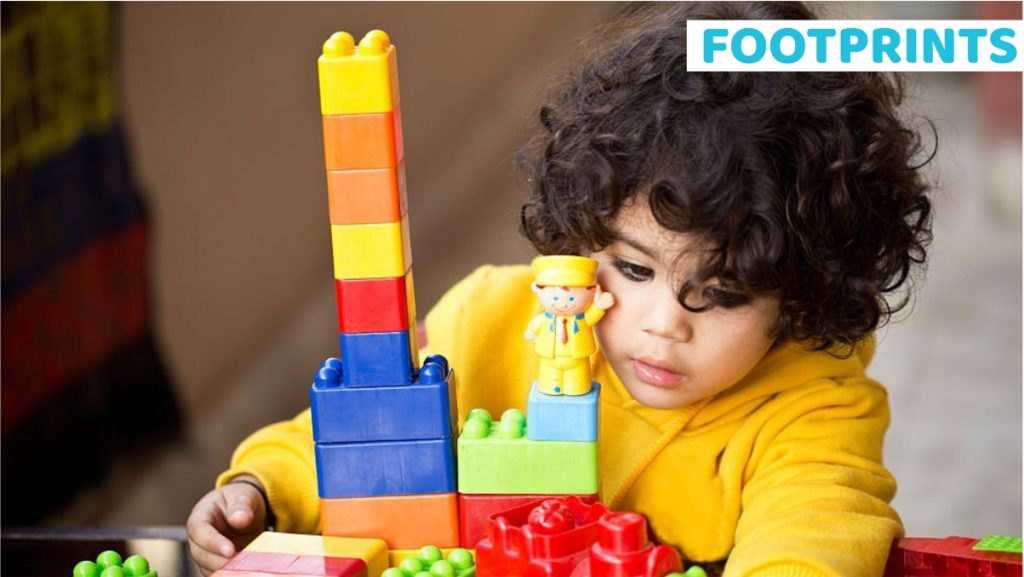
Early Childhood Development Stages to Keep an Eye On
Milestones for 2-4 Months Old
• Looking at parents and smiling
• Copying some of their expressions and movements
• Starting to babble
• Turning their heads and tracking movements through eyes and sounds
• Holding their head up and pushing up while lying on their tummy
Milestones for 6-9 Months Old
• Starting to recognize faces
• Sitting up without any support
• Choosing their favorite toys
• Learning to pick up objects with the help of their thumb and index finger
• Pulling themselves up to stand while getting support from surrounding objects
Milestones For One-Year-Old
• Behaving nervously or being shy around strangers
• Using simple gestures to communicate
• Saying “dada” or “mama”
• Following simple and easy directions like “pick up your toys”
• Finding hidden items easily
• Taking some steps or standing without any support
Milestones For 18 Months Old
• Initiating playing by giving objects to others
• Pointing at things they want
• Saying multiple single words even randomly
• Knowing how regular ordinary objects like spoons and telephones are used
• Learning to drink from cups and eat food with spoons
Milestones For Two Years Old
• Showing excitement around peers or other kids
• Repeating phrases or words they have overheard recently
• Beginning to sort colors and shapes
• Beginning to climb, stand tiptoed, run, and throw
Milestones For Three Years Old
• Exhibiting a broad range of emotions
• Showing concern and emotions for others
• Playing make-believe
• Following two to three steps instructions
• Dressing up and undressing themselves
Milestones For Four Years Old
• Starting to enjoy doing new things
• Talking about their new interests
• Understanding basic grammar rules
• Learning to pour mash and cut food with adult supervision
Milestones For Five Years Old
• Liking to dance, sing, play and act
• Speaking in whole sentences clearly
• Printing numbers and letters
• Learning to use the toilet by themselves
Whether you are a new parent, who is raising your kid, or you are keeping the young ones safe and busy in the childcare centres understanding the development stages of kids helps you relate to them. Hopefully, this article has made you aware of the significant early childhood development milestones and why understanding these stages will help you see the bigger picture when it comes to educating the little ones.
That being said, every child is unique and different from one another, and development doesn’t happen in the way textbooks and charts describe it. So keep an eye out for these early childhood development milestones but at the same time, make sure you don’t measure all kids against this checklist.
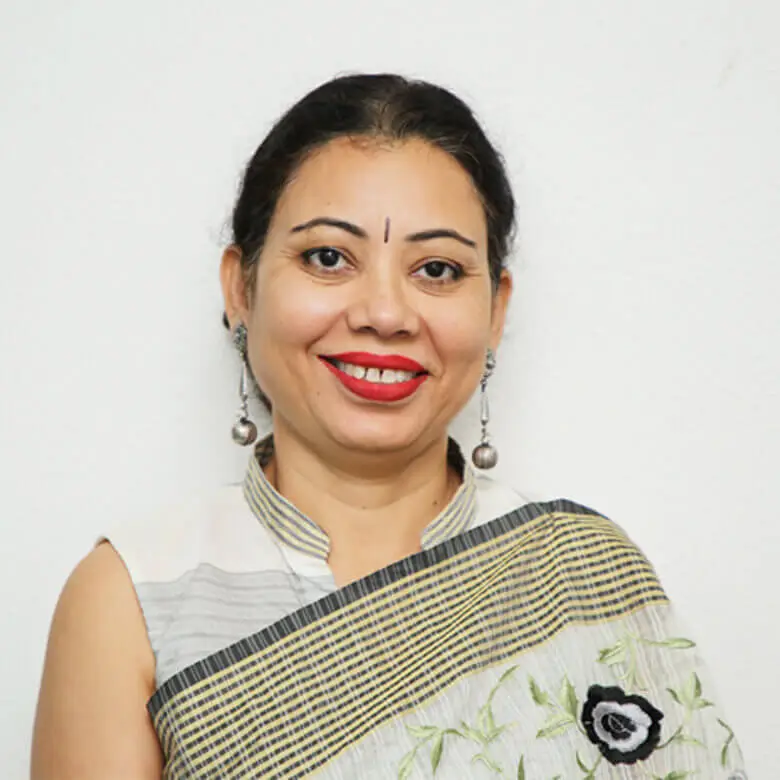
Amita is an experienced educator with over 30 years of experience. She has an outstanding understanding of child development, having worked with various age groups for prestigious businesses. She has been dedicated to handling Footprints’s Curriculum and Delivery department for the past decade. Amita’s credentials include being one of India’s few HighScope Curriculum certified trainers and volunteering as a course leader for Landmark Education, the world’s largest training firm.


